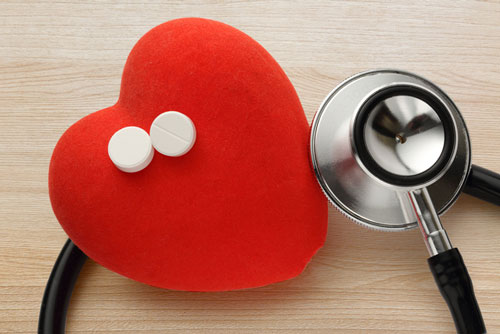American doctors have long advised people at risk for a heart attack to take a daily low-dose aspirin.
The idea is that aspirin makes the blood thinner. This prevents clotting, which in turn prevents a heart attack or stroke.
But major new research reveals that daily aspirin hurts more than helps many of the people who take it.[i]
The study was published in the journal JAMA Neurology. Scientists analyzed data from 13 clinical trials. The research included more than 134,000 subjects.
The bottom line?
The risk of intracranial hemorrhage (brain bleeding) was 37% higher for people who regularly took aspirin.
Dr. Meng Lee of Chang Gung University College of Medicine in Taiwan was a co-author of the study. He said that brain bleeding “is a special concern because it is strongly associated with a high risk of death and poorer health.”[ii]
The study team said low-dose aspirin still makes sense for people who have had a heart attack. But for everyone else, the risks outweigh the benefits, they found.
In response to the study, mainstream heart organizations are changing their guidelines. The American Heart Association and the American College of Cardiologists used to encourage most adults over 50 to take a daily low-dose aspirin.
They now say aspirin “should be limited to people at the highest risk of cardiovascular disease and a very low risk of bleeding.”[iii]
Natural Ways to Prevent Heart Disease
There are a number of science-backed steps you can take to avoid heart disease. None of them involve taking aspirin or any other drugs…
- Regular exercise. Even just walking at a moderate pace for 30 minutes most days is beneficial.
- Stress reduction. Studies show a link between constant stress and heart issues. Reduce stress with mindfulness meditation. You can learn to do it here.
And, of course, diet is important Some overlooked but highly effective heart-healthy foods and supplements include:
- Rutin. This is a plant pigment. It directly benefits the cardiovascular system by relaxing blood vessel walls. This prevents plaque buildup. It has the blood-thinning effects of aspirin without causing bleeding.[iv]
Rutin is found in apple skin. Eating one red apple a day gives you the amount you need. You can also get rutin in supplement form.
- Krill oil. You already know that the omega-3 fatty acids in cold water fish and supplements are beneficial. They reduce inflammation, which is one of the main risk factors for high blood pressure and heart disease.
But krill oil is over 10 times more powerful than regular fish oil. Studies find that just 300 mg each day can reduce inflammation by over 30% in a month.[v]
- Berries. They’re high in fiber, full of vitamins, and fight heart disease.
Berries contain a powerful compound call anthocyanin. It can lower your risk for high blood pressure by 10%.[vi]
Berries high in anthocyanin include blackberries, blueberries, and raspberries. You can get a good amount of it from red wine too.
Editor’s Note: Discover other natural, non-drug methods to improve your health by reading Independent Healing. It’s your best source for unbiased, evidence-based medical information.
Related Articles
‘Bad’ Cholesterol Does Not Cause Heart Disease
More Americans than Ever Take Statins…and the Heart Disease Epidemic Keeps Growing
Like this Article? Forward this article here or Share on Facebook.
[i]https://jamanetwork.com/journals/jamaneurology/article-abstract/2732929
[ii]https://www.reuters.com/article/us-health-heart-aspirin/without-heart-disease-daily-aspirin-may-be-too-risky-idUSKCN1SJ275
[iii]https://www.acc.org/latest-in-cardiology/articles/2019/03/08/15/32/sun-2pm-acc-aha-release-first-guideline-primary-prevention-cvd-gl-prevention
[iv]http://www.healthline.com/health/potential-benefits-of-rutin#prevents-blood-clots3
[v]http://www.ncbi.nlm.nih.gov/pubmed/17353582
[vi]http://institutefornaturalhealing.com/2013/08/this-colorful-antioxidant-lowers-blood-pressure/

